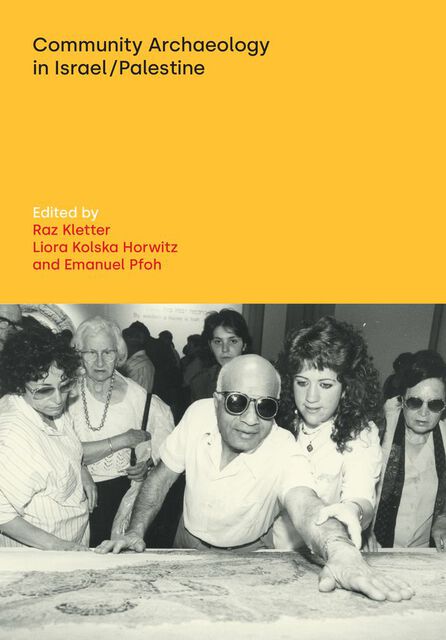Kletter/Community Archaeology, 3. Something Old, Something New: Conducting Community Archaeology at the Wrong Site

Full description
The chapter discusses community excavations in Lid (Lod), a city in the center of Palestine/Israel, which was almost entirely erased in the Nakba of 1948. The excavations took place in the core of this once living city. Today it is a ‘mixed’ city, whose older neighborhoods are home to people of low socio-economic status with no involvement in life-changing decisions made by the current authorities ‘from above’, including about the destiny of the city heritage. Being a member (third generation after 1948) to a family from Lid, my participation in the project aimed to make this heritage more visible and acknowledgeable. The chapter describes doing community archaeology shared by Arabs and Jews on all levels (from team members to volunteer children), and trying to turn neglected remains into worthy heritage. Not only in academic terms, but also in terms of the communities’ present life. The chapter also tells about the hurdles of revealing a contested past, which is traumatic to some and irrelevant and unwanted to others. This affects decisions about preservation (of some remains) and demolition (of others), which go against the spirit of community archaeology: the land is rich with varied cultural layers, which are all part of human heritage.
- typeImage
- created on
- file formatjpeg
- file size73 KB
- container titleCommunity Archaeology in Israel/Palestine
- creatorTawfiq Daʿadli
- isbn9781800504837 (eBook)
- publisherEquinox Publishing Ltd., 2024
- publisher placeSheffield, United Kingdom
- rights holderEquinox Publishing Ltd.
- series titleDiscourses in Ancient Near Eastern and Biblical Studies
- doi
We use cookies to analyze our traffic. Please decide if you are willing to accept cookies from our website. You can change this setting anytime in Privacy Settings.
